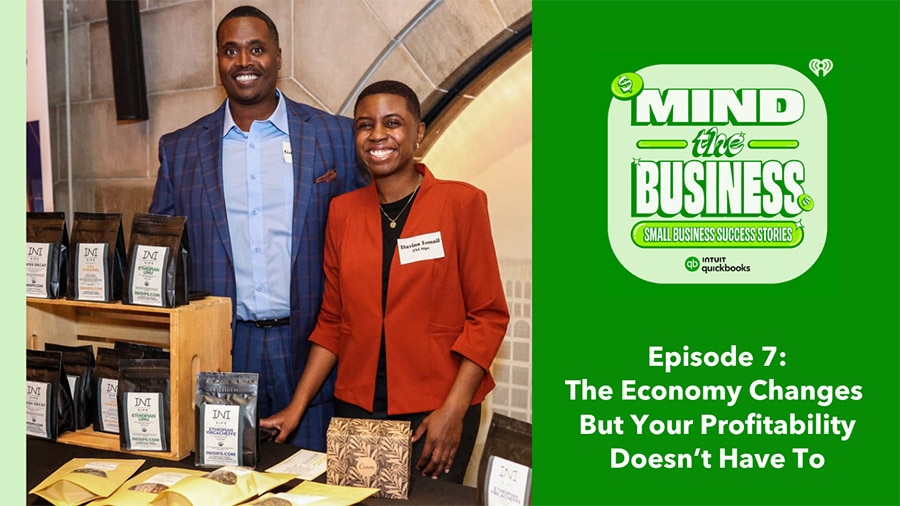Staying profitable while the economy shifts is no small feat for small businesses. It takes hard work, innovation, and perseverance to stay atop cash flow and profits when the business environment changes.
Gulaid and Davina Ismail are spouses and business partners who are intimately familiar with the challenge. They were among the many Americans who opened a new business just as the pandemic took hold in 2020. They pivoted their community-oriented coffee shop into an e-commerce business that gave back to local health care workers — turning a potential disaster into a profitable business.
The Ismails, founders of East Coast-based INI Sips, share the steps they took to successfully maintain cash flow during economic turbulence — and the ways they're continuing to think about pivoting today. In this episode of Mind the Business: Small Business Success Stories, the Ismails and hosts Jannese Torres and Austin Hankwitz discuss the ways small business owners can prepare for the unexpected, adapt their businesses, and be proactive. Listen to the full episode below.















